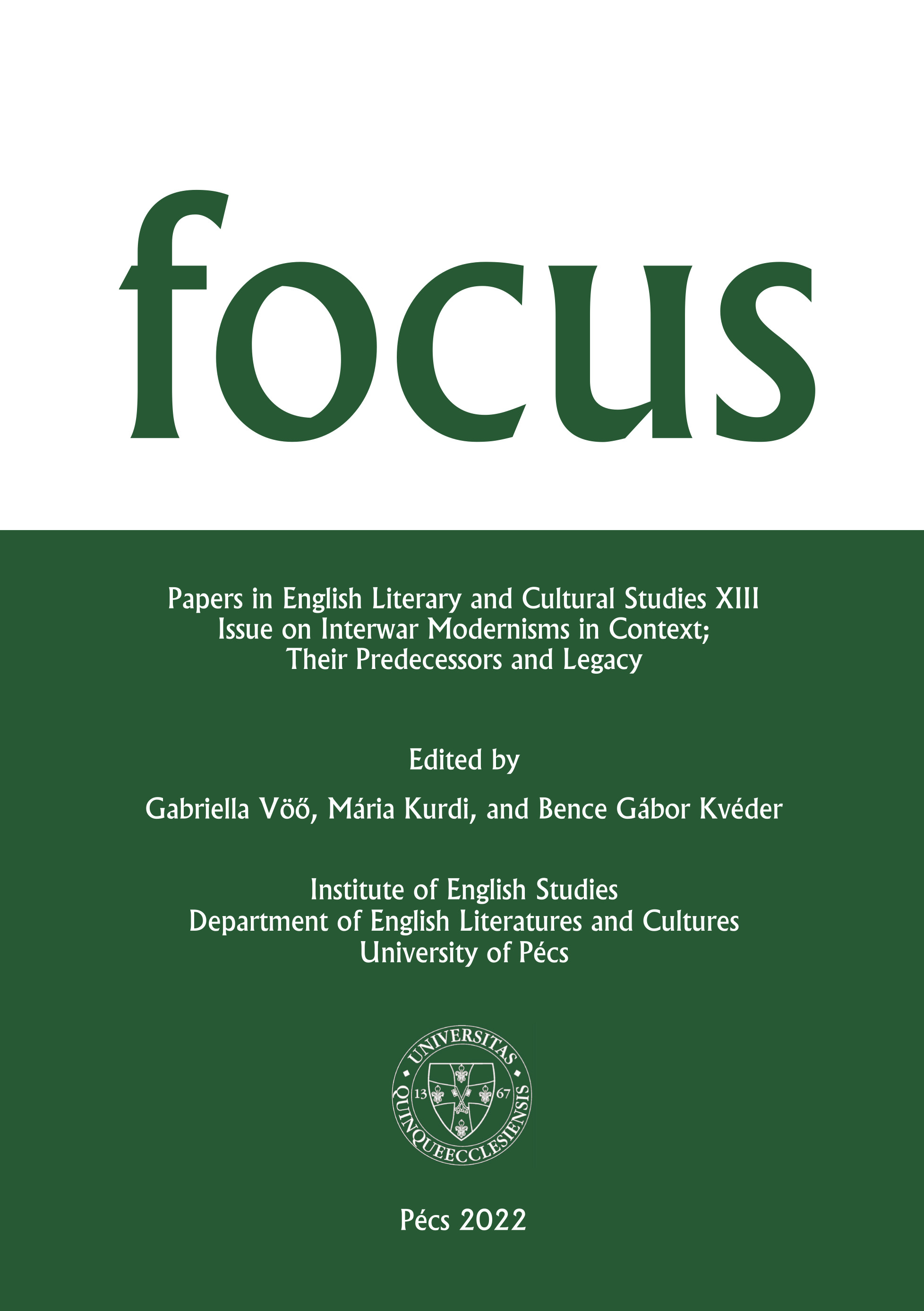Ford Madox Ford’s “Cold Pastoral”: The Last Post
DOI:
https://doi.org/10.15170/Focus.13.2022.1.13-25Abstract
The essay discusses the last volume of Ford Madox Ford’s tetralogy Parade’s End (1924-28). As Andrew Hampson and Robert Purssell highlight, whether The Last Post is an integral part of the tetralogy has been heavily debated since Graham Greene decided to publish the 1963 edition of the ‘Tietjens Saga’ as a trilogy. As they go on to explain, a major charge against the volume is “tying up too neatly various loose ends” (2013). Indeed, The Last Post seems to call for an interpretation in the pastoral tradition, which suggests that Ford’s novel—especially in comparison with Rebecca West’s The Return of the Soldier (1918)—ends in an idyll even if it is not free from certain ironies inherent in pastoral literature, as Seamus O’Malley (2007) maintains. In my view, on closer scrutiny, these ironies fundamentally undermine the “too neat” ending of the tetralogy. Haunted by the aftereffects of war and the ghosts of Mark’s, Christopher’s and Valentine’s former selves, dissolving identities not only by decentering but also by doubling, this apparent idyll far too often offers glimpses of its own Gothic alter ego, a narrative of madness, imprisonment and disintegration. Yet, as consistent readings of the novel in the pastoral mode imply, the Gothic double never fully takes over but, in my interpretation, subverts the superficial idyll of The Last Post, and with that, fully optimistic interpretations of the entire tetralogy.
Downloads
Published
How to Cite
Issue
Section
License

This work is licensed under a Creative Commons Attribution-NonCommercial-NoDerivatives 4.0 International License.
FOCUS: Papers in English Literary and Cultural Studies follows the principles laid down by Creative Commons, which provides guarantees for the Author’s copyright while also ensuring that intellectual properties are made available for the wider public in a digital form. All papers submitted to the journal apply the following licence conditions (indicated on the journal’s website as well as in individual publications):
“© This work is licensed under a Creative Commons Attribution-NonCommercial-NoDerivatives 4.0 International License.”
You are free to:
- Share, copy and redistribute the material included in the journal in any medium or format under the following terms:
- Attribution — You must give appropriate credit to the Author, and indicate the original place of publication [FOCUS: Papers in English Literary and Cultural Studies, Issue nr., page numbers.].
- NonCommercial — You may not use the material for commercial purposes.
- NoDerivatives — You are not allowed to remix, transform, or build upon the material.
- The above conditions must always be indicated if the journal material is distributed in any form.
- The above conditions must always be met, unless a written permission signed by the Author and the Editor-in-Chief states otherwise.

